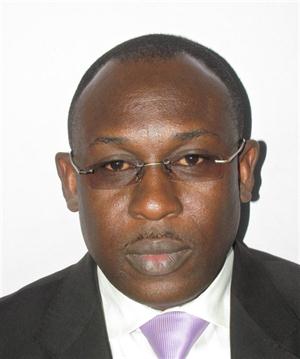Ghana is better off without Education Ministry – Kofi Bentil
 The Vice-President of IMANI Ghana, Mr Kofi Bentil, has stated that education in Ghana would improve tremendously if the Ministry of Education was scrapped.
The Vice-President of IMANI Ghana, Mr Kofi Bentil, has stated that education in Ghana would improve tremendously if the Ministry of Education was scrapped.
Advertisement
“If we had no Ministry of Education, Ghana’s education will be better”, Mr Bentil said, stressing that corruption and “zero leadership” on the part of the Ministry had combined to put Ghana’s education in a “terrible” state.
He was contributing Wednesday to a discussion on Joy FM, an Accra-based radio station.
Throwing light on his assertion, Mr Bentil made mention of less privileged students in slums across the country, who, according to him, were being taught by school dropouts for GHc1 a day, yet were passing exams better than students being taught by trained teachers in schools.
When asked by the host of the programme, Bernard Shaibu, to mention any country in the world where government did not play a role in education, Mr Bentil backtracked, saying he had not called for government to stay out of education.
He said he had merely stated the need for government to manage education better than it was currently doing.
He argued that thousands of students were performing poorly despite the fact that $1.8 billion was invested yearly in education.
“When you have a situation where not doing anything is going to give you a better result than what we are doing, then we need to be worried about it,” he added.
Mr Bentil said “a huge failed leadership” in education had led to an “overcentralisation” of power in the Ministry of Education and the Ghana Education Service, creating a huge demand over supply in terms of the number of good schools available.
This development, he said, was responsible for the corruption that had plagued education in the country.
As proof of his argument, he said many parents were resorting to desperate means, including the payment of bribes, to get their wards into certain top schools in the country.
The IMANI Vice-President said the way forward would be for government to give favourable focus to the private sector, saying: “Without support from government, private schools are doing what government should be doing.”
He emphasised the need to look at the education system in term of both the public and private sector.
Mr Bentil pointed out that even public school teachers do not send their children to public schools where they teach. “They send them to private schools”, he said.
He underscored the need to change the mindset that all education is only about public schools and called for an education system that would mandate government to help pay fees of students who would love to go to private schools.
Dr Charles Wereko-Brobbey, a fellow panellist on the programme, however, rejected Mr Bentil’s suggestion that government’s role in education should be limited in favour of a bigger role by the private sector.
Mr Wereko-Brobbey, the Chief Policy Analyst at Ghana Institute for Public Policy Options (GIPPO), said education was the biggest priority for any country in the world.
He said education could not be allowed to become entirely privitised, noting that the governments of even the most economically advanced countries in the world play key roles in education.
Dr Wereko-Brobbey said a situation whereby poor parents were forced to send their children to private schools would mark the worst for Ghana’s educational sector.
By Samuel K. Obour/Graphic.com.gh/Ghana




